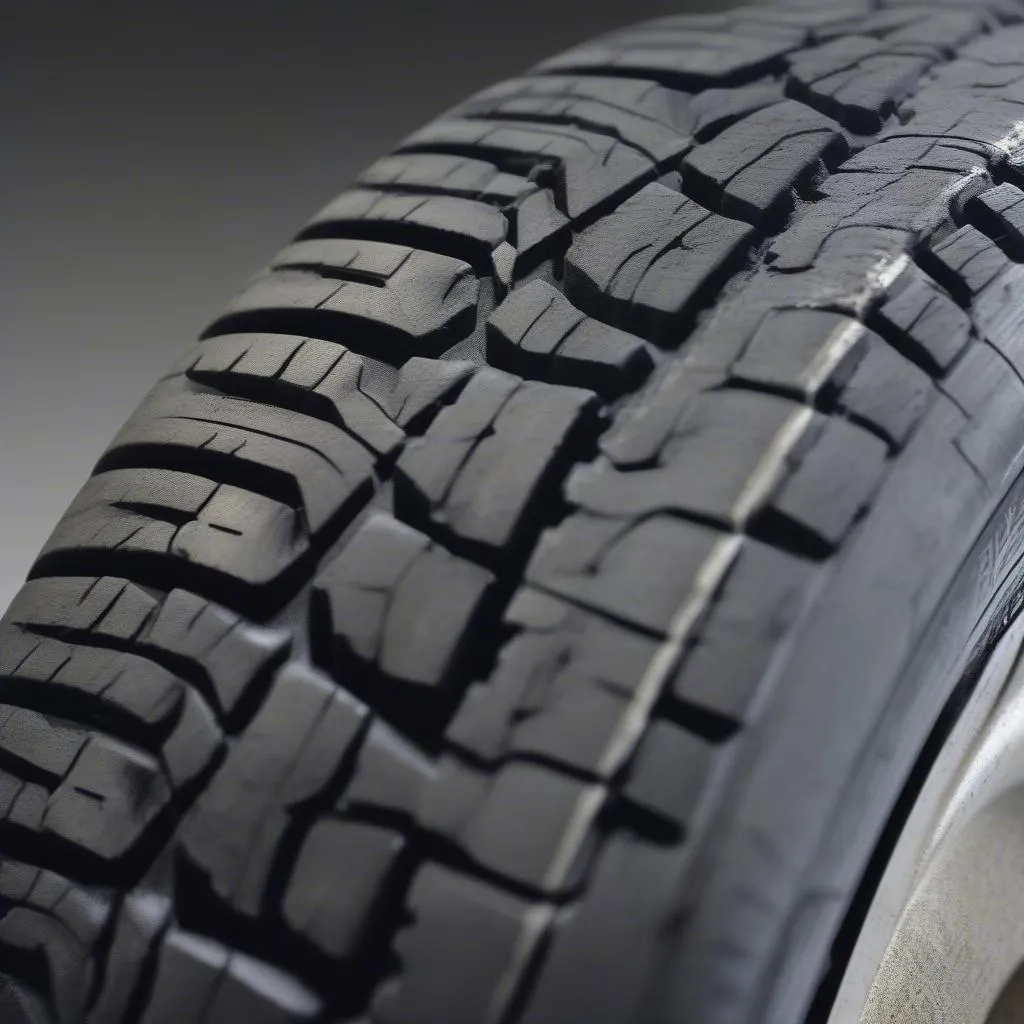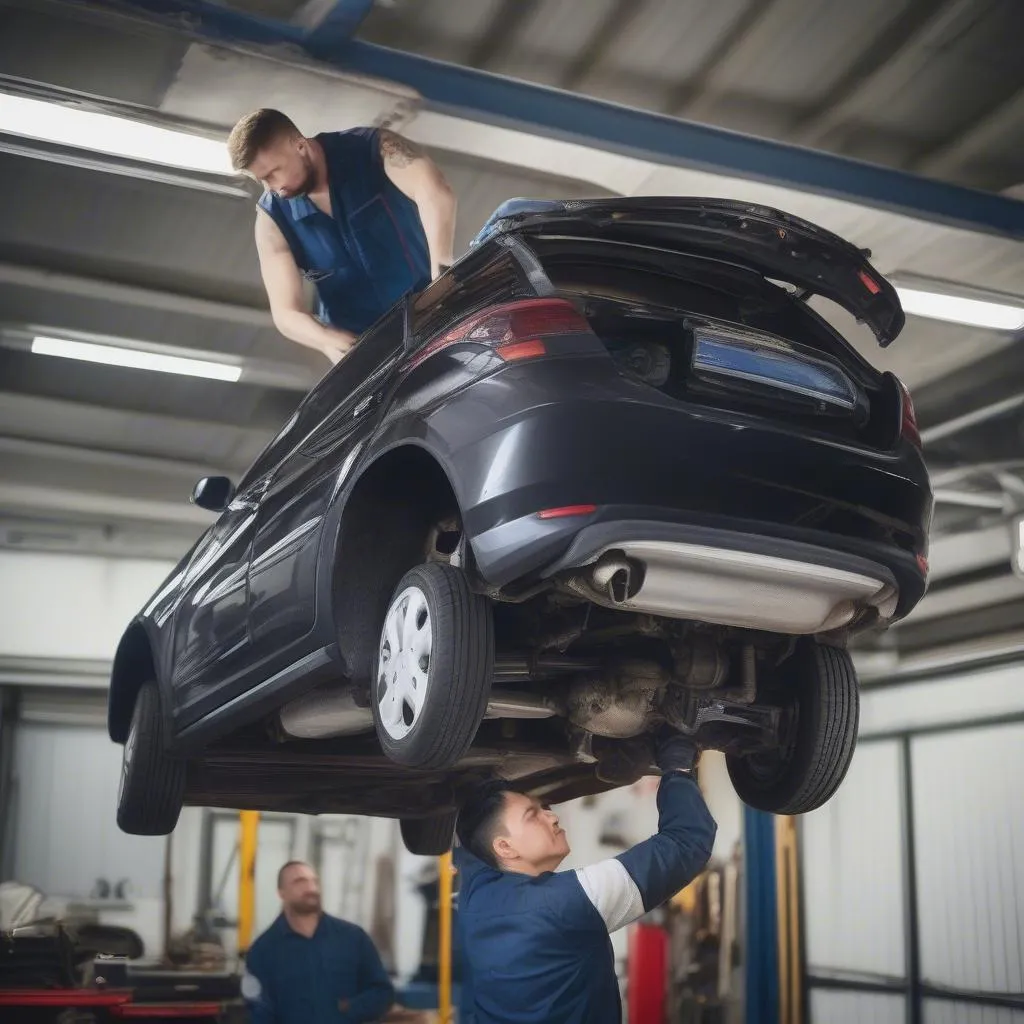Picture this: you’re cruising down the highway, enjoying the scenery, and your favorite song is on the radio. Suddenly, as you hit 60 mph, your car starts to shake. Not exactly the smooth ride you were hoping for, right?
This shaking, or vibration, can be a little unnerving, and it’s a sure sign your car is trying to tell you something. But what? Let’s dive into the possible reasons why your car shakes at 60 mph and, more importantly, what you can do about it.
Understanding the Shakes: What Does It Mean?
From a mechanic’s perspective, a car shaking at a certain speed, like 60 mph, usually points to an issue with a rotating component. This could be anything from your tires to your axles.
Technically speaking, the faster these components spin, the more likely even a small imbalance will translate into a noticeable vibration. Think of a washing machine with an uneven load – it shakes most violently during the spin cycle when things are moving the fastest.
Now, before you start panicking about hefty repair costs, let’s remember this is a common problem. “Many drivers, especially those with older vehicles, experience this issue,” says automotive expert, Dr. Emily Carter, author of “The Car Whisperer: Understanding Your Vehicle’s Language.”
Common Culprits: Why Your Car Shakes at 60 mph
Here’s the deal: several things could be causing your car to shake at 60 mph. Let’s explore some of the most likely suspects:
1. Tire Troubles: Out of Balance or Worn Out
Your tires are the first place to investigate. Even slightly unbalanced tires can cause vibrations at higher speeds. This happens as centrifugal force amplifies the imbalance, making the steering wheel and sometimes the whole vehicle shake.
What to do: Head to a reputable tire shop and ask them to balance your tires. If you notice uneven tire wear, that’s another red flag. You might need new tires to solve the problem.
2. Wheel Alignment Issues
If your car has hit a few too many potholes on Sunset Boulevard, Los Angeles, or taken some corners a little too sharply, your wheel alignment could be off. Misaligned wheels can cause all sorts of handling problems, including vibrations at higher speeds.
What to do: A simple alignment check at your local mechanic or a specialist shop like Firestone Complete Auto Care can get you back on track.
3. Worn-Out Suspension Components
Your car’s suspension system works hard to keep your ride smooth. Over time, parts like ball joints, tie rod ends, and control arm bushings can wear out, causing vibrations that are more pronounced at higher speeds.
What to do: Have a mechanic inspect your suspension system. They can identify any worn-out parts that need replacing.
4. Bent or Damaged Wheels
Hitting a curb or driving through a particularly nasty pothole can damage your wheels. A bent wheel won’t spin smoothly, leading to vibrations that worsen with speed.
What to do: A mechanic can inspect your wheels for damage. Sometimes, a bent wheel can be repaired, but in other cases, replacement might be necessary.
5. Driveline Problems
The driveline transmits power from your engine to the wheels. Issues with the driveshaft or CV joints can cause vibrations, especially at higher speeds.
What to do: If you suspect a driveline issue, it’s best to get it checked by a mechanic specializing in transmission and driveline repairs.
 Car Tire
Car Tire
Ignoring the Shakes Isn’t Cool: Potential Consequences
We get it; sometimes, it’s tempting to just crank up the music and pretend the shaking isn’t happening. But ignoring the problem won’t make it go away. In fact, it can lead to:
- Premature tire wear: Vibrations can cause your tires to wear unevenly, shortening their lifespan.
- Worsening damage: A small issue, like a slightly unbalanced tire, can escalate into a more significant problem if left unaddressed.
- Safety hazards: In severe cases, excessive vibrations can affect your car’s handling, potentially leading to dangerous situations.
Keep Calm and Get It Checked: What to Do Next
If your car shakes at 60 mph, don’t panic. It’s a common problem with solvable solutions. Here’s a recap of what you should do:
- Don’t ignore it: Addressing the issue early can save you money and headaches down the road.
- Start with the basics: Check your tire pressure and look for any obvious signs of tire wear or damage.
- See a professional: If you can’t pinpoint the problem yourself, take your car to a trusted mechanic for a proper diagnosis.
Got More Car Questions? We’ve Got Answers!
Still curious about car maintenance or have other burning questions about your vehicle’s quirks? Check out these related articles for more insights:
- Car Shaking When Speeding Up: Explore the potential reasons behind shaking as you accelerate.
- Car Vibrates at Low Speed: Discover why your car might be vibrating at lower speeds.
- What Can Cause a Car to Shake at High Speeds?: Dive deeper into the reasons behind high-speed vibrations.
Remember, taking care of your car means a smoother, safer, and more enjoyable ride.
 Car Mechanic
Car Mechanic
Need Help with Your Diagnostics Tool?
Are you struggling with a tricky car issue? Do you need help installing or using your diagnostics tool? Our team of automotive experts is here to help 24/7. Contact us via WhatsApp at +84767531508, and we’ll get you back on the road in no time.